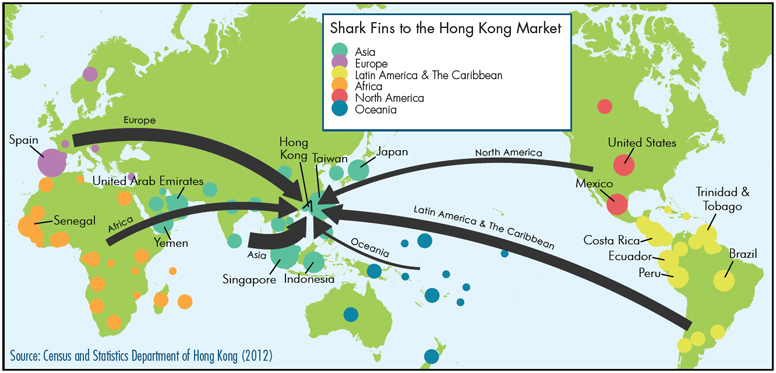New Report on Status of Global Shark Conservation
A new analysis by the Pew Environment Group notes that although 55 percent of sharks that have enough data available to assess them (150 species) are threatened or near threatened with extinction, current shark management is woefully inadequate. The review is being released as most of the more than 190 members of the UN Food and Agriculture Organization (FAO) convene in Rome for the FAO Committee on Fisheries (COFI) meeting this month.
Shark fishing globally is driven largely by the demand for fins for soup. According to trade data from Hong Kong’s Census and Statistics Department, 83 countries or territories supplied more than 10.3 million kilograms (22.7 million pounds) of shark fin products to Hong Kong in 2011. Due to poor reporting and underreporting of shark catches, it is not known how many sharks are being caught globally. However, scientists estimate that the actual catch is likely to be three or four times higher than official FAO statistics.
The review of 211 places where sharks are caught includes coastal countries, territories, and political entities, and maps out an inadequate patchwork of varying measures at the domestic, regional, and international levels for trade regulation or shark protection. Only about one-third of all countries ban the wasteful practice of finning, and few have protections for individual shark species—even those that are threatened or endangered with extinction.
The loss of sharks and the major declines in their populations are likely to cause irreversible damage to ocean ecosystems. Healthy and biologically diverse shark populations play an important role in maintaining the marine environment and, importantly, regulate the variety and abundance of species below them in the food web, including commercially important fish.
The full report is available in PDF format here. An executive summary is also available.

